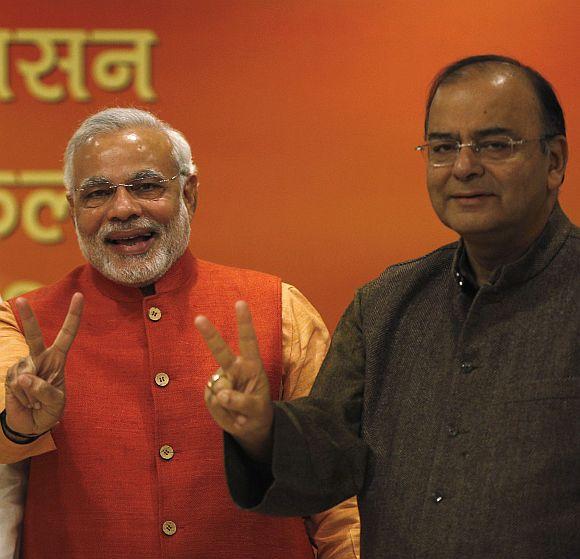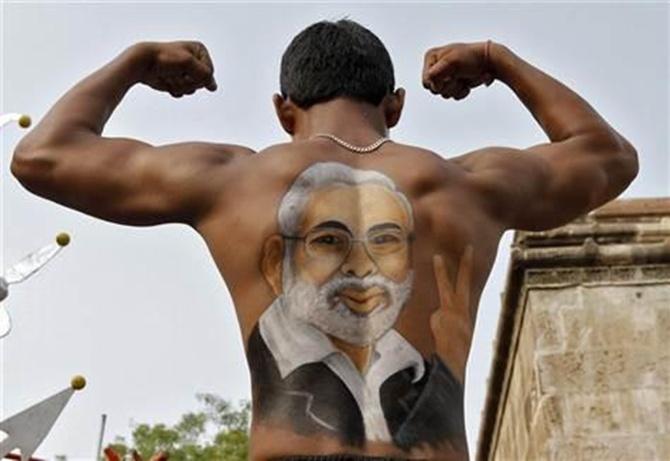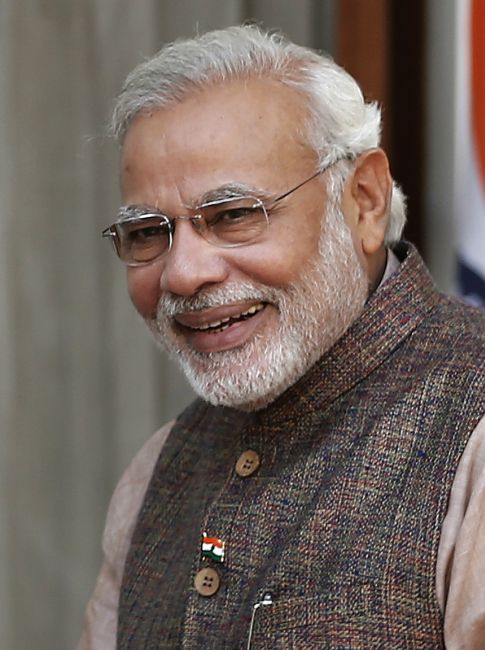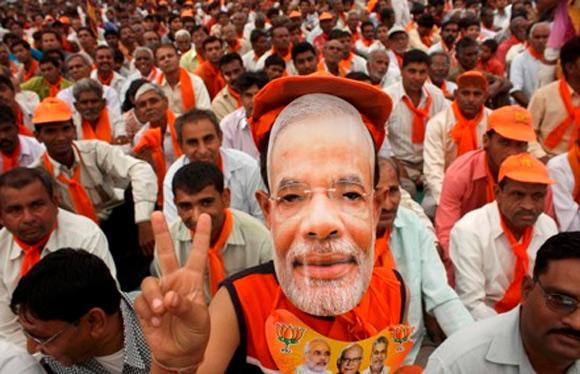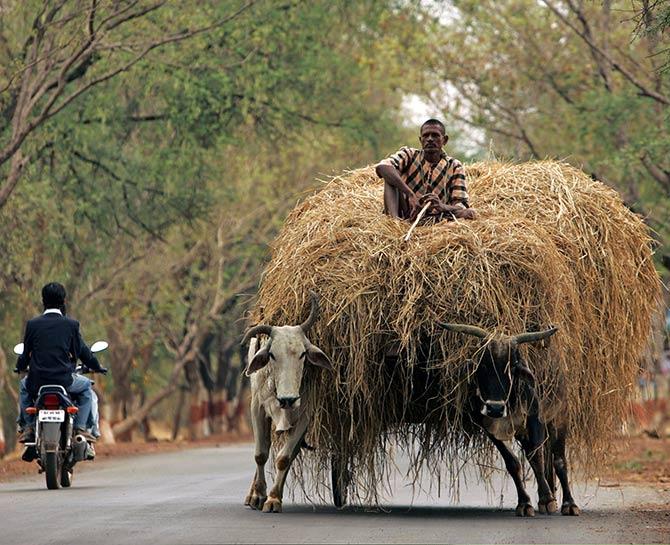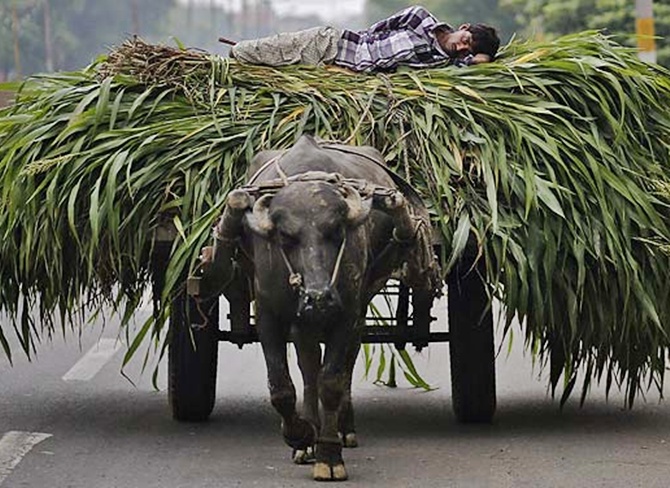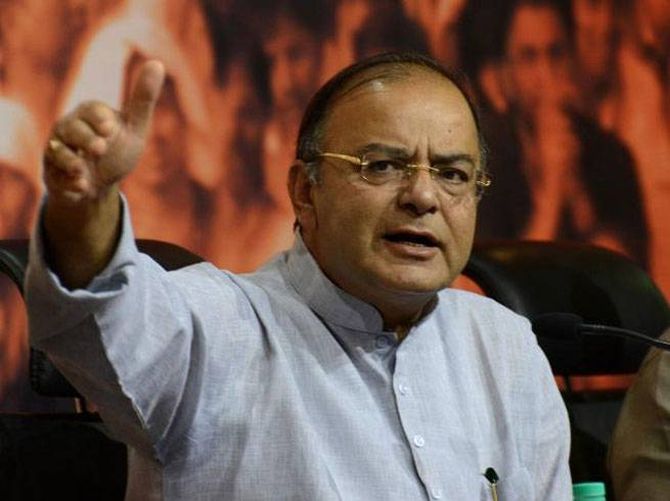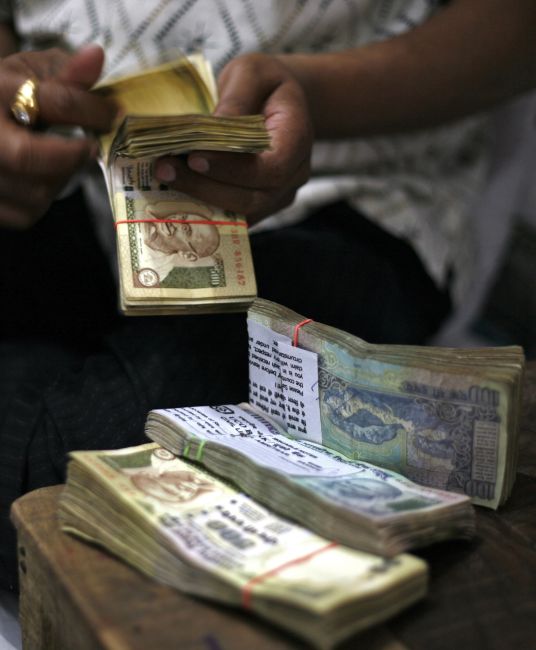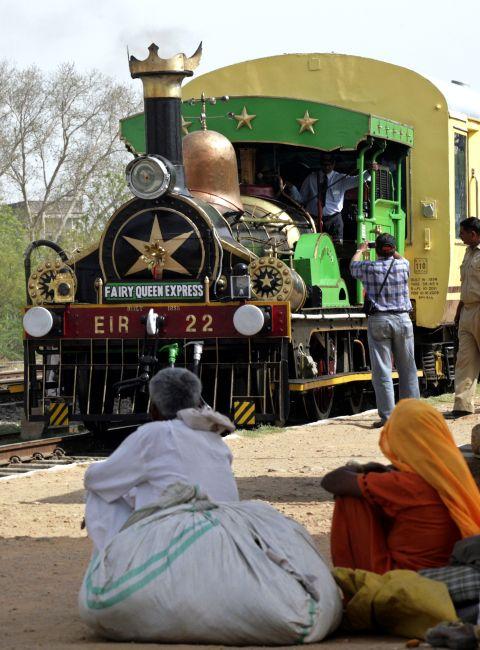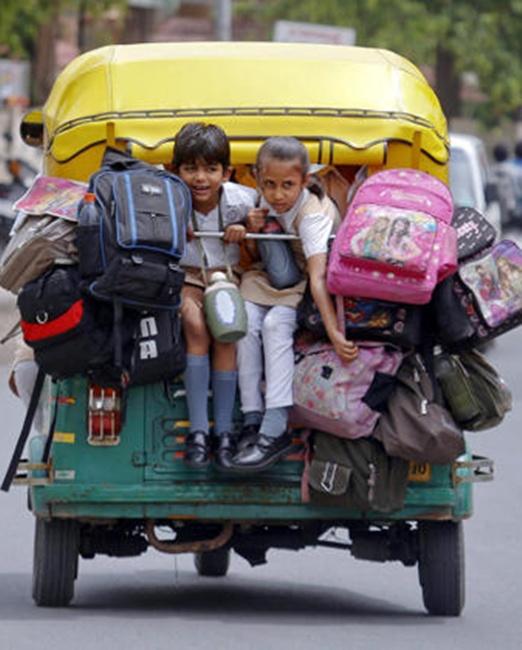 | « Back to article | Print this article |
Modi govt lacks courage to bring real change
The government has neither the mental model nor the political courage to effect real change, point out Ashoka Mody & Michael Walton.
The roar of Narendra Modi's sweeping election victory and its narrative of radical change set up high expectations. Soon, however, came the whimper.
The proposal of a modest rise in rail fares was quickly pulled back. And the appeasement of the Maharashtra sugar lobby deepened long-standing inefficiencies and inequities.
At first, the mood was to dismiss these in the hope of a radical Budget. But the straws in the wind proved reliable guides: Finance Minister Arun Jaitley lost his nerve.
Is radical change really underway but perhaps artfully hidden from the public? Is the government biding its time, first wooing voters with goodies in the coming state elections and then launching into a new era of transformative governance?
Please click NEXT to read more…
Modi govt lacks courage to bring real change
Modi offered a focal point for the collective disgust and increasingly frustrated public aspirations.
He had an apparently credible storyline around the Gujarat experience and the image of a tough leader.
And he fed the fantasy of a saviour. He will, most likely, undo the most egregious failings of the United Progressive Alliance administration, and the stalled economy should show some life.
But transformative change will remain elusive. The business-as-usual economic policy, with which this government has begun, should have been expected.
For about a century, a motley group of lower middle class voters has steered Indian politics. Since independence, meeting their insistent livelihood demands has been the prime objective of every political party and government.
Please click NEXT to read more…
Modi govt lacks courage to bring real change
The Bharatiya Janata Party (BJP) attentively wooed this coalition with finely-tailored promises and remains anxious to hold on to this constituency in the forthcoming state elections. India's central political dynamic remains intact.
In his autobiography, Jawaharlal Nehru reflected that the political base of the Indian National Congress - and, hence, of the freedom movement - was the petite bourgeoisie, the lower middle classes.
Picking up on Nehru's theme after independence, K N Raj, the diminutive but intellectually-towering economist and political thinker, argued that the lower middle classes had remained India's central political constituency. They defined, he said, the country's governing coalition, an "intermediate regime."*
The "intermediate regime" is a heterogeneous patchwork of claimants, including salaried workers, farmers and small entrepreneurs.
They earn enough to get by and because they have established property rights - and enjoy government largesse - they have a stake in the system. But they live under a basic insecurity that their livelihoods may be easily compromised and eroded.
(* Raj's essays are reprinted in Ashoka Mody, ed. "Inclusive Growth," Sameeksha Trust and Orient Longman, 2006)
Please click NEXT to read more…
Modi govt lacks courage to bring real change
Raj's claim was that political success in India required harnessing this "intermediate" coalition of interests.
The formal coalition may require multiple parties or be absorbed in single party (as in the Congress in its dominant years and the BJP in its latest election).
But although the characters in Delhi inevitably change, all governments must cater to the demands of the "intermediate" regime - not least because members of every party are drawn from the same milieu. Hence, indispensable policy continuity is built into the political process.
While the poor are important to the rhetoric and receive some sops, their aspirational benchmarks remain those of the lower middle classes, who, therefore, remain salient in framing the policy dialogue. The political equilibrium is reached by granting generous rents to the rich.
Please click NEXT to read more…
Modi govt lacks courage to bring real change
Today, the heterogeneous "intermediate" group is more extensive, better off, more educated and more politically active. Indeed, with progress in reducing the number below the poverty line, the ranks of the "intermediate" class have swelled.
Between 2009 and 2014, the BJP and Congress essentially swapped vote shares: the BJP's share rose from 19 to 31 per cent between 2009 and 2014, while Congress' share fell from 29 to 19 per cent. Roughly 50 per cent voted for regional parties in both elections.
The electorate may well have sought major changes in how the government functions, but it is not yet ready to give up on the blend of consumer subsidies, income-support programmes and the coddling of agricultural interests.
Please click NEXT to read more…
Modi govt lacks courage to bring real change
For any political party, the political calculation is simple.
Is it possible to inflict short-term pain on the "intermediate" groups with the promise of acchey din, better days? The narrow electoral arithmetic dictates the answer. Because acchey din are uncertain and, in the meantime, no lobby can be left behind, the goodies cannot be taken away.
Technocratic cheerleaders of the new government are dismayed. India's threat to disrupt the World Trade Organisation (WTO) unless subsidies to farmers are allowed, leads the distinguished economist Surjit Bhalla to lament, "Why, in the name of god and India, is Modi-BJP pursuing an illogical and regressive stance at the WTO?"
The government's WTO position should not be any more surprising than its pandering to Mumbai's urban commuters, Maharashtra's sugar lobby or kerosene consumers.
The accommodation with Indian business interests has been achieved through the entrenchment of a rentier class. Then, it was industrial licences and protection through high import tariffs.
Please click NEXT to read more…
Modi govt lacks courage to bring real change
Now, it is the award of rights to land, natural resources and government contracts. The new rent-seeking is more distasteful and corrosive.
With inherited wealth increasingly concentrated in a few families, the new maharajas - and their acolytes - show contempt for public norms and distaste for productive enterprise.
The Jaitley Budget had three telltale signs of political continuity. First, the government plans to hold on to the nationalised banks. Put simply, there is no economic reason for them today - if ever there was one.
All social objectives can be met through more efficient and equitable means. Nationalised banks persist because they are a source of fiscal largesse to political constituents. The banks are especially desirable because the financial favours can be doled out without public scrutiny.
Please click NEXT to read more…
Modi govt lacks courage to bring real change
Eventually, the unaccounted losses on account of waivers and non-performing loans appear as claims on the central government's Budget for bank recapitalisation.
Second, all are agreed that the public-private partnership (PPP) model of infrastructure construction has failed to deliver, even as it has spawned wanton corruption.
But PPPs are another avenue to feed the rentier class, while claiming that other financing options are largely closed.
Third, the BJP, which voted for MGNREGA, cannot now dismantle it. Perhaps, the programme's productivity can be improved, but the political "leakages" will remain endemic.
Please click NEXT to read more…
Modi govt lacks courage to bring real change
The nod to aspirational India comes in the promise of "smart" cities, high-speed trains and linking of India's river systems.
This over-the-top promise is either a cynical ploy or a serious disconnect with reality. While China remains the elusive model for such grand ventures, its example of low-cost housing for hundreds of millions and clean toilets does not have a political constituency.
What is missing is a coherent programme for growth.
Today, more so than ever, the one variable that will determine long-term growth prospects is the quality of education.
Please click NEXT to read more…
Modi govt lacks courage to bring real change
The achievements remain dismal.
In a fiercely competitive global system, as the Red Queen may have said to Alice, we must run faster to stay in the same place.
But are we willing to learn from China's example in the provision of world-class primary and secondary education?
The absence of a transformative agenda is a calculated accommodation to India's political economy. Modi brilliantly channelled the cry for change into an electoral platform.
But the government has neither the mental model nor the political courage to effect real change.
As so often, political and bureaucratic elites have made promises to the Indian electorate that they cannot keep. Acchey din may be a long way off.
Ashoka Mody teaches at the Woodrow Wilson School, Princeton University. Michael Walton teaches at the Kennedy School, Harvard University, and is a visiting fellow at the Centre for Policy Research.
